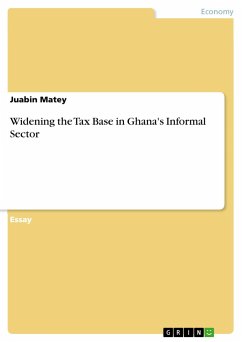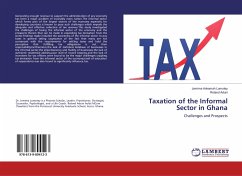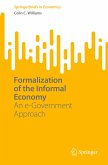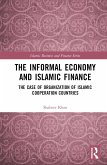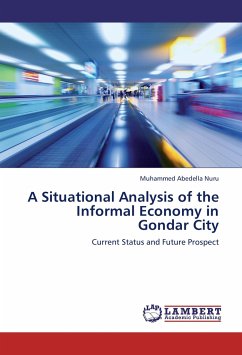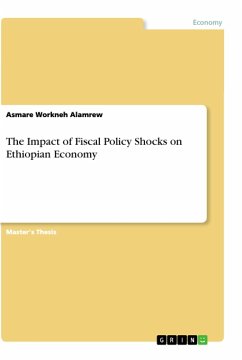Essay from the year 2018 in the subject Economics - Finance, grade: 89, University of Cape Coast, course: Bachelor of commerce in accounting, language: English, abstract: Over the years, Ghana's budgets have suffered perennial deficits partially on account of low domestic tax revenue mobilisation which statistically hover around 18% of Gross Domestic Product. Whilst this downside has several facets, one of the foremost remedies is protecting the domestic tax base. Widening the domestic tax base of the economy has been a subject matter that has received hefty attention of successive Governments over years in most parts of the world. As a matter of reality, various tax authorities in Ghana have created numerous efforts directed at mobilising as much as possible tax revenue to assist government expenditures on developmental, social, recurring and interventional projects over the years. These efforts of tax mobilisation are dear to governments for the achievements of fiscal consolidation and higher tax revenue to Gross Domestic Product ratio. Ghana Revenue Authority's efforts are carefully crafted to tackle the informal sector where there are perceived revenue leakages but still struggling as a result of the inadequacies of the current tax structure to efficiently mobilise revenue from certain industries and sectors of the economy. The concept of the informal sector with its tax liability is considered as a social model mainly used for small, medium and micro enterprises that are quite difficult to be captured by the operations of tax authorities. It is evidently a fact therefore that though the government needs to mobilise tax revenue quite on the aggressive side, tax increases have a decline effect on upper-income households' reported taxable income and indeed more than, decrease moderate-income households' reported income. This is not because upper-income households choose to work less, but because they take advantage of their greater capacity to shift income from one category to another or one time period to another to reduce their taxes. Consequently, Fieldhouse reiterates that, raising tax rates while broadening the tax base through tax elimination and expenditures in the form of deductions, exclusions, exemptions, and preferential treatment of capital income against labour efforts and improving tax enforcement to minimize this avoidance thus could deter inefficient allocations of capital that are made simply for tax purposes.
Hinweis: Dieser Artikel kann nur an eine deutsche Lieferadresse ausgeliefert werden.
Hinweis: Dieser Artikel kann nur an eine deutsche Lieferadresse ausgeliefert werden.

